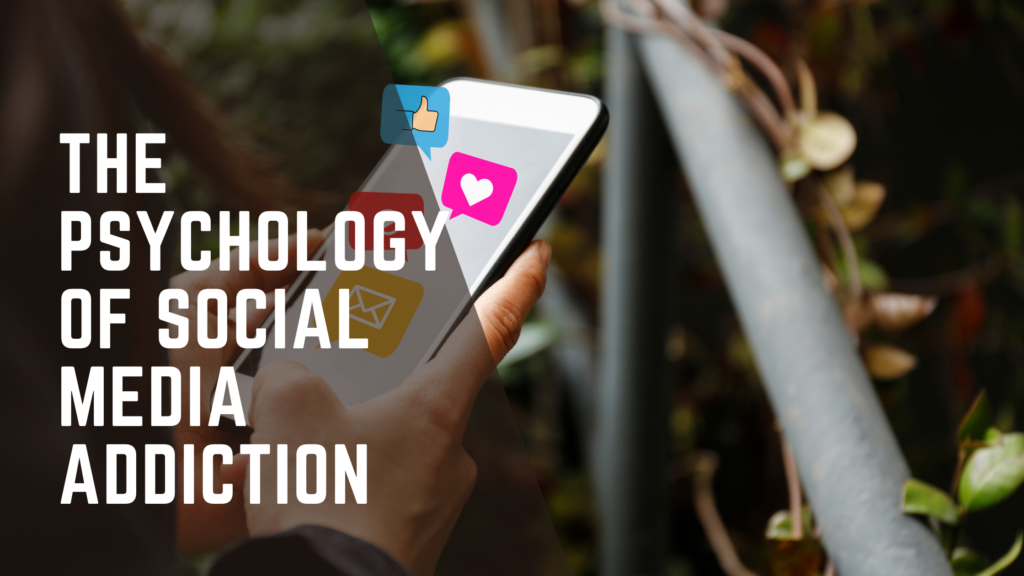
In today’s interconnected world, “Social Media Addiction” has become more than just a buzzword; it’s a serious concern with deep psychological roots. This phenomenon, often underestimated as a simple consequence of modern technology, has a far-reaching impact on our mental and emotional health. The allure of digital interactions and the ease with which they are accessed have transformed the way we perceive and engage with social media. 🌍🤳
Understanding Social Media Addiction
Social Media Addiction is characterized by an uncontrollable urge to continuously check and engage with social platforms, often at the cost of real-life interactions and responsibilities. This pattern of behavior is not accidental but a result of meticulously designed features of these platforms. The infinite scrolling, the allure of notifications, and the never-ending quest for likes, comments, and shares are all strategically placed to tap into the human brain’s reward system. When we receive these social signals, our brain releases dopamine, a neurotransmitter associated with feelings of enjoyment and satisfaction. This release creates a powerful emotional high, reinforcing the behavior and encouraging repeated engagement. 🔄💡
This cycle of immediate gratification is incredibly addictive. The quick hits of pleasure from social interactions on these platforms can lead users to prioritize virtual interactions over real-world connections and responsibilities. Over time, this can lead to excessive screen time, often crowding out activities that are crucial for healthy living, such as physical exercise, face-to-face interactions, and even sleep. The irony is stark – tools designed to connect us with others can sometimes lead us to become more isolated, both mentally and emotionally. 🌐🔗
The understanding of Social Media Addiction is crucial in recognizing its grip on our daily lives and the need for a balanced approach to our digital and real-world interactions.
Impact on Mental Health
The rise of Social Media Addiction signals a shift in how we interact with technology and each other. This addiction often starts subtly, with the occasional scrolling through feeds, but gradually, it can become a central part of one’s daily routine. The platforms themselves are engineered to captivate users’ attention for as long as possible. Features like algorithmically-curated feeds and push notifications are designed to create a sense of urgency and a fear of missing out (FOMO), further fueling this addiction. 🚨📲
Moreover, the social validation loop is a critical aspect of this addiction. When someone posts content and receives likes, comments, or shares, it validates their social presence and can boost self-esteem. However, this dependency on external validation for self-worth can be psychologically damaging. It creates a cycle where self-esteem becomes increasingly tied to online interactions, making users more susceptible to negative feedback or the anxiety of not receiving enough engagement. 👥💬
The implications of Social Media Addiction extend beyond individual health and touch upon broader social and cultural dynamics. As we spend more time in virtual spaces, our ability to engage in deep, meaningful conversations and maintain strong interpersonal relationships can diminish. This shift can lead to a more fragmented society where digital connections overshadow real-life bonds. 🌐👫
Addressing Social Media Addiction is not just an individual endeavor but a societal challenge. It calls for a collective reevaluation of how we engage with technology and the role it plays in our lives. By understanding the psychological mechanics behind this addiction, we can start to take steps towards a more balanced and mindful use of social media. 🌟🧠
This expanded section dives deeper into the behavioral patterns and societal implications of social media addiction, emphasizing the need for a balanced digital lifestyle.
In confronting the challenges of Social Media Addiction, we must recognize its profound impact on our lives and society. This issue is not just about personal discipline; it’s about reshaping our relationship with digital platforms. By understanding the psychological aspects of this addiction, we can better navigate our way towards healthier digital practices.
It’s essential to emphasize moderation and mindful usage. Social media, when used wisely, can be a powerful tool for connection, knowledge, and inspiration. However, when it becomes a compulsive habit, it can detract from our real-world experiences and relationships. The goal is to cultivate a digital environment that enriches rather than diminishes our lives.
Ultimately, the journey to overcoming Social Media Addiction is about redefining our priorities and values in the digital age. It’s about creating a harmonious balance where we harness the benefits of social media without letting it control our lives. By doing so, we can ensure that our engagement with these platforms contributes positively to our mental health and overall well-being. 🌍🧘♂️🌟




